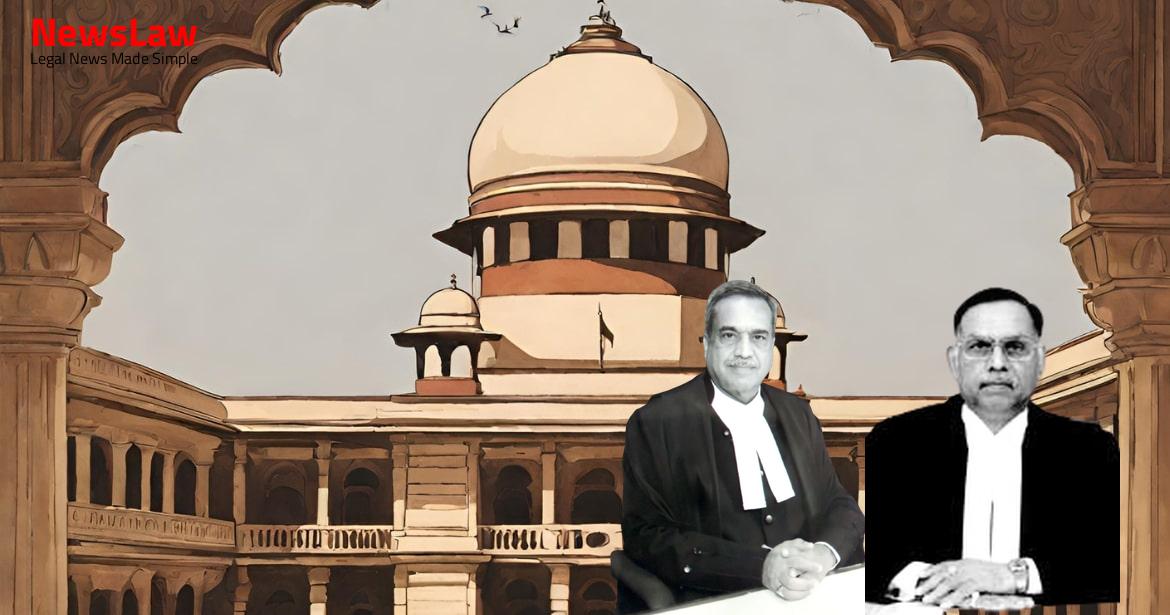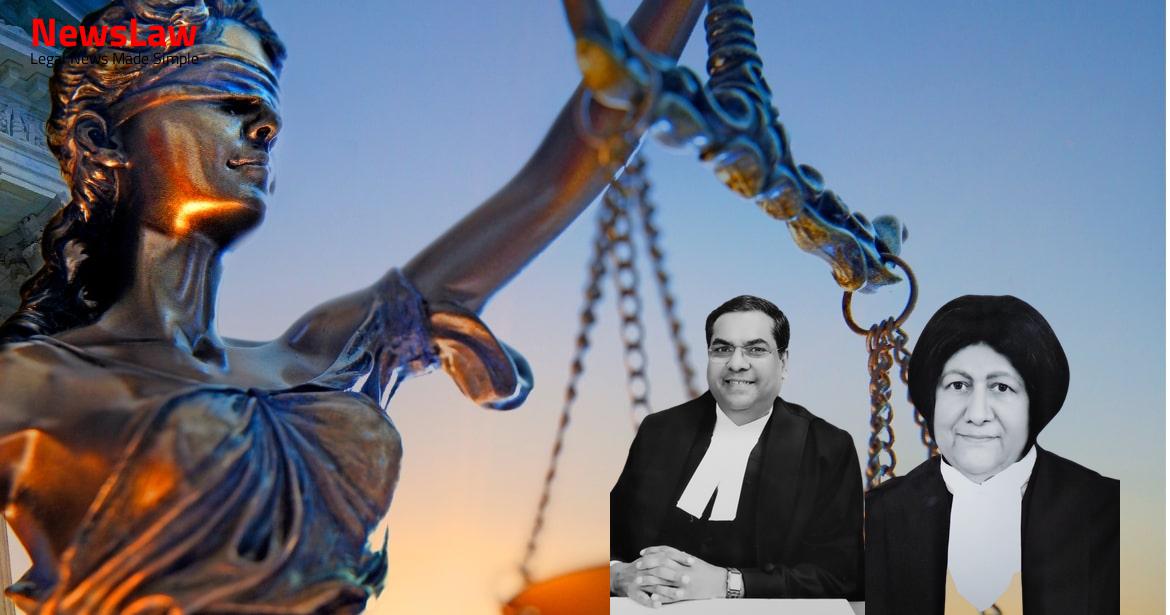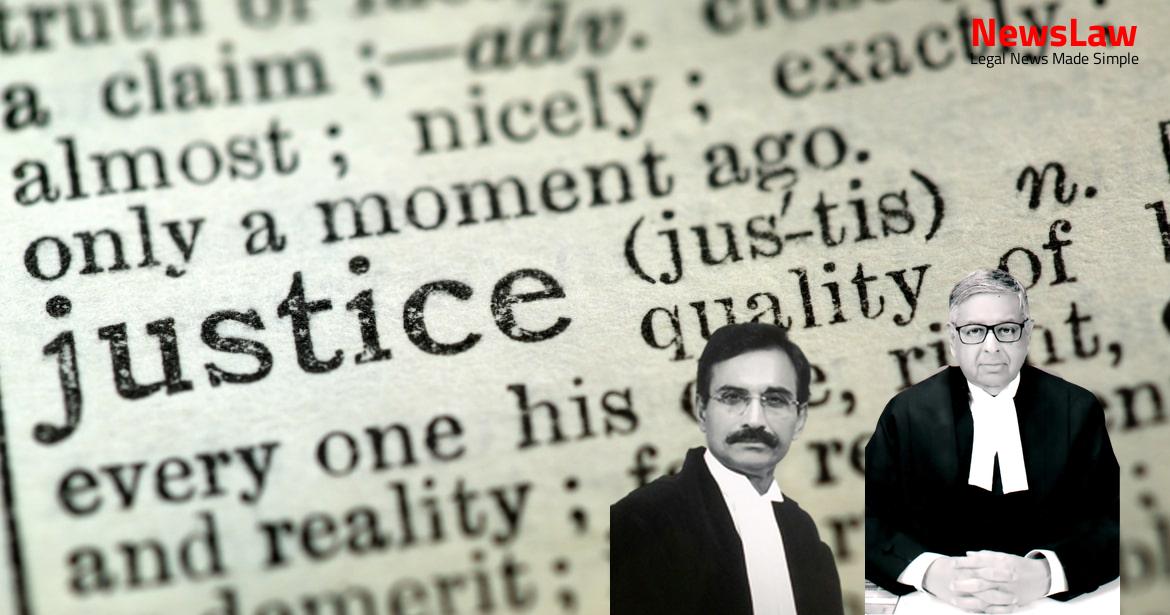In a groundbreaking decision, the Supreme Court of India has ruled in favor of the landlady in a case revolving around subletting allegations. The dispute between the landlady and the sub-tenant has reached a conclusion with the eviction decree being upheld. This judgment reinforces the importance of property rights and addresses the issue of subletting in the rental landscape. Let’s delve into the details of this significant legal battle.
Facts
- The High Court allowed the revision application filed by the original defendants.
- This decision was in response to the aggrieved parties expressing discontent with the judgment and order passed by the High Court of Judicature at Madras.
- The impugned judgment and order was dated 24.04.2017.
- The original defendants were successful in their revision application with regard to CRP (NPD) No 2898/2013.
- The landlady issued a legal notice to original defendant, Bala Venkatram, pointing out breaches and demanding possession of the premises within 15 days.
- A change in name and ownership of the shop in the tenanted premises from ‘Best Mark Super Market’ to ‘Amutham Super Market’ was observed by the landlady, leading to the eviction suit.
- The eviction suit was filed on the grounds of sub-letting and arrears of rent under Sections 10(2)(i), 10(2)(ii)(a)(b), and 10(2)(iii) of the Act.
- The original tenant, Bala Venkatram, passed away during the legal proceedings, and the case was continued by the legal heirs.
- Discrepancies in rent payments and business names were highlighted as evidence of sub-letting in the tenanted premises.
- The original tenant’s legal heirs and the sub-tenant filed a revision application before the High Court, challenging the decision of the Rent Control Appellate Authority.
Also Read: Court’s Analysis on Interim Order for Appointing Contractual Employees
Arguments
- The landlady’s advocate argues that all the ingredients of sub-letting are proven, such as parting with possession without consent.
- The first appellate authority found subletting, which the High Court should not have interfered with.
- The High Court did not consider crucial documents/evidence on record.
- The original tenant claimed partnership with the sub-tenant but provided no proof.
- The High Court erred in quashing the eviction decree based on sub-letting.
- The appellant argues that the High Court wrongly concluded that sub-letting was not proven.
- The landlady appeals against the High Court’s decision to quash the eviction decree.
- The High Court’s judgment was based on insufficient evidence.
- The High Court’s ruling on sub-letting was contrary to the evidence on record.
- The High Court allowed the revision application and overturned the eviction order.
- Sales tax certificate and shop license were evidence of sub-letting by the original tenant to the sub-tenant.
- Appellant, as a power of attorney holder, is not the owner of the suit premises, making the eviction petition not maintainable.
- Appellant cannot be considered a landlady, thus the eviction petition is not valid.
- High Court rightly set aside the eviction decree due to the lack of ownership by the appellant.
Also Read: Analysis of Legal Jurisdiction and Fraud Allegations in a Banking Case
Analysis
- The court found that there was no genuine partnership between Bala Venkatram and Shahu Hameed.
- Inducting a partner in the business does not amount to subletting.
- Bala Venkatram admitted to handing over the shop to Shahu Hameed through a power of attorney.
- The suit premises was let out to Bala Venkatram for a period of two years to run ‘Best Mark Super Market’.
- The High Court did not discuss the evidence on record, including the deposition of Bala Venkatram.
- The bank accounts and sales tax certificate are in Shahu Hameed’s name.
- Bala Venkatram gave possession of the shop to Shahu Hameed through a general power of attorney due to old age.
- The Rent Control Appellate Authority passed the eviction decree based on subletting and arrears of rent.
- The High Court set aside the eviction decree on the grounds of subletting and arrears of rent.
- The appellant’s status as a landlady is established as rent was paid to her directly.
- The landlord has the burden of proving subletting, with evidence or cross-examination.
- If a partnership is used to conceal subletting, the court can look through the partnership agreement.
- Bala Venkatram admitted that Shahu Hameed was running the business as the owner.
- Bala Venkatram’s claim of partnership was to avoid the subletting allegation.
- The bank accounts and business operations are exclusively handled by Shahu Hameed.
- The landlord can bring evidence to show subletting despite a partnership agreement.
- The landlord must prove that a third party has exclusive possession of the premises to shift the burden to the tenant.
- The tenant, Bala Venkatram, was put in possession under a rental agreement executed by the appellant.
- The shop’s license and sales tax certificate are registered in Shahu Hameed’s name.
- The suit premises are exclusively in the possession of Shahu Hameed.
- The appellant, the landlady, is deemed to have the authority to file an eviction petition based on the rental agreement.
- For subletting to occur, there must be a transfer of legal possession with the right to include and exclude others.
- In order to prove subletting as a ground for eviction under rent control laws, two ingredients must be established: parting with possession by the tenant in favor of a third party with exclusive right of possession, and the purpose of such partnership being the subletting of the premises to the third party.
- If a tenant becomes a partner in a partnership and allows the firm to conduct business in the rented premises while retaining legal possession, it does not amount to subletting.
- Inducting a partner in the tenant’s business or profession is allowed as long as the partnership is genuine.
- The High Court made a grave error in setting aside the eviction decree based on sub-letting.
- The case clearly demonstrates elements of sub-letting.
- The evidence presented overwhelmingly supports the conclusion of sub-letting.
- The decision to set aside the eviction decree lacks legal justification.
Also Read: Ramaswami v. Land Owner: Specific Performance Suit
Decision
- The present appeal is allowed.
- The appellant is to be handed over peaceful possession of the suit premises within three months.
- The respondents must file a usual undertaking before the Court.
- Full arrears of rent must be paid within four weeks.
- The impugned judgment of the High Court is set aside.
- The judgment of the Rent Control Appellate Authority is restored.
Case Title: A. MAHALAKSHMI Vs. BALAVENKATRAM(D) THROUGH LR (2020 INSC 12)
Case Number: C.A. No.-009443-009443 / 2019



